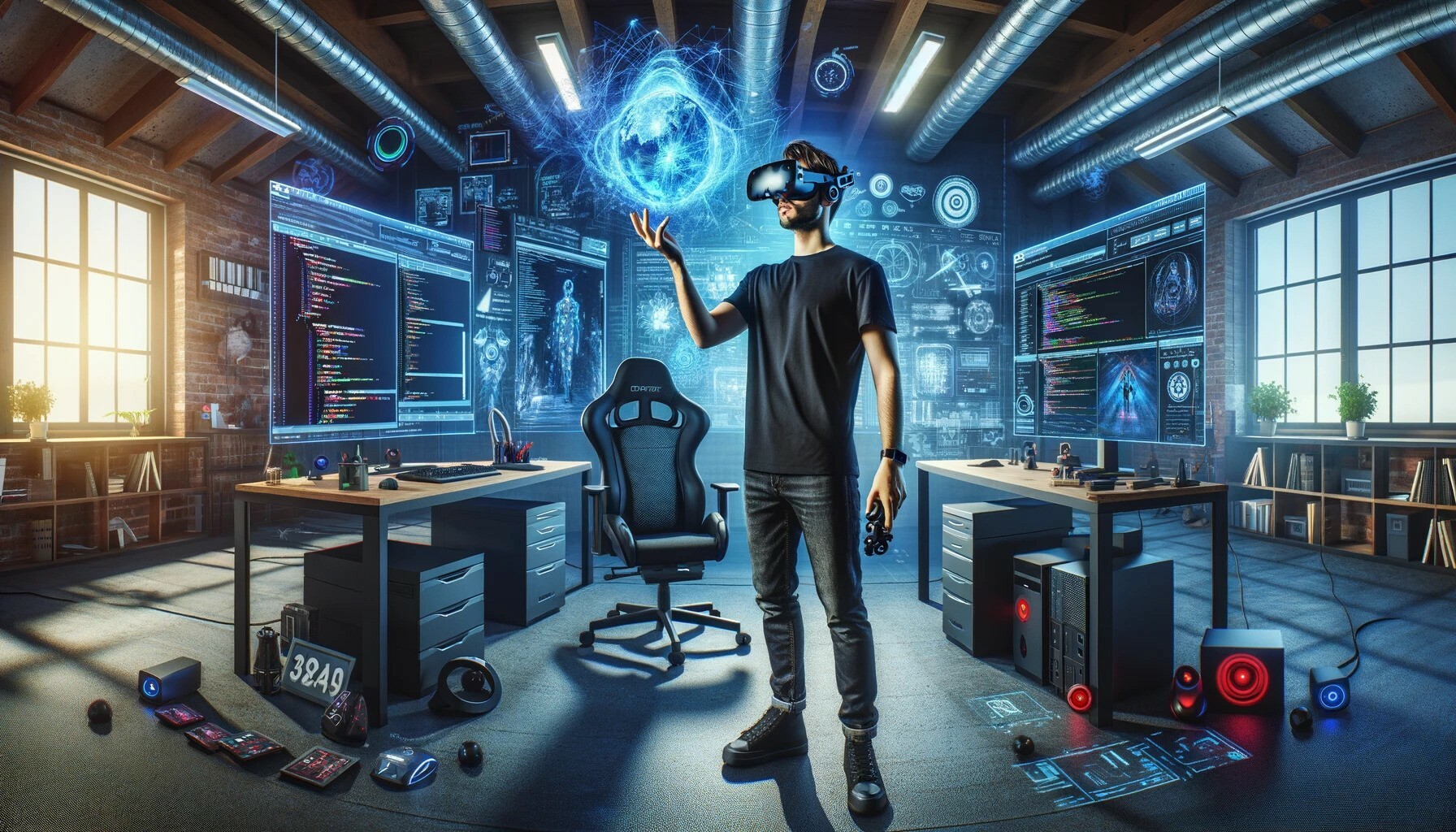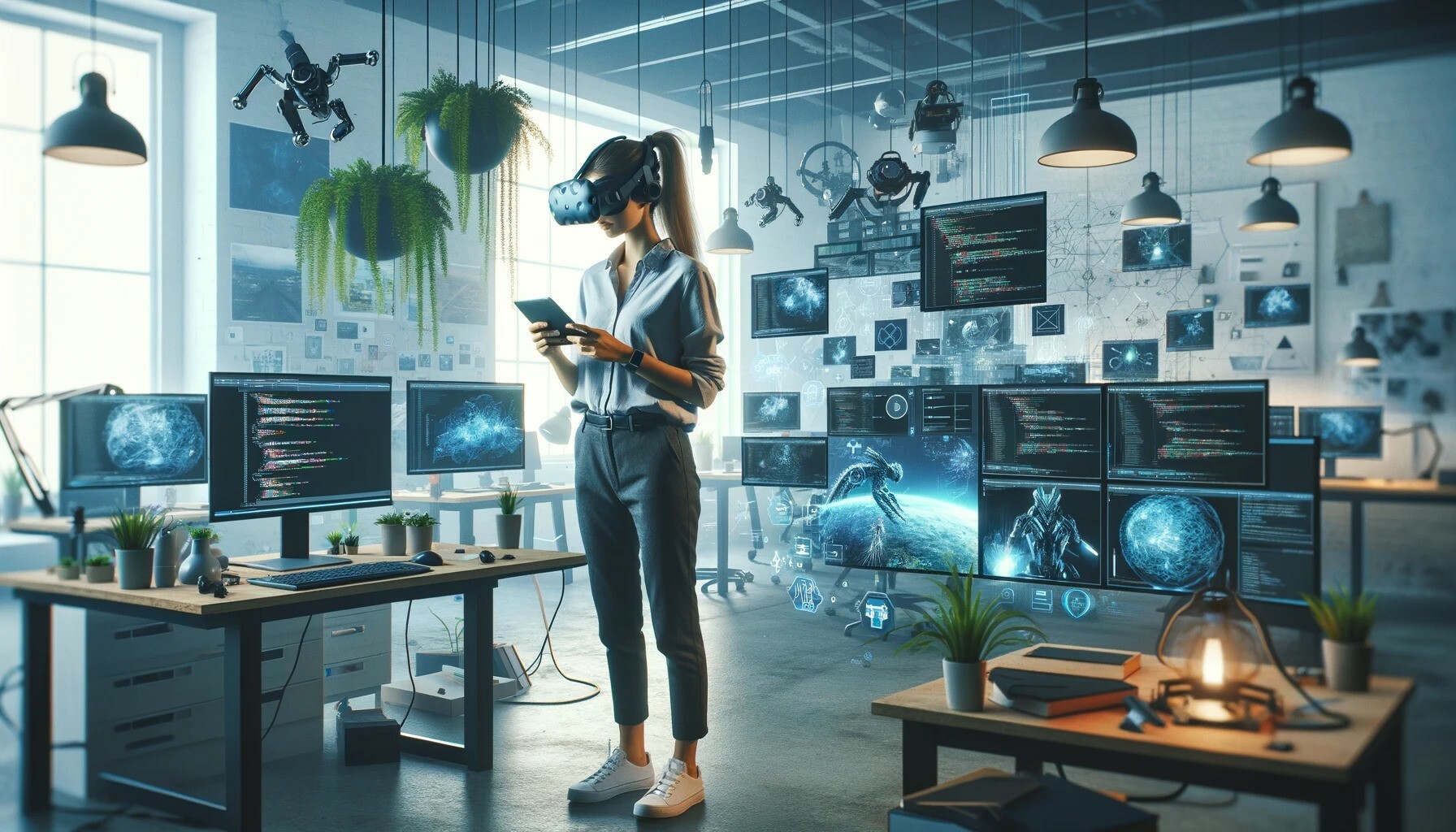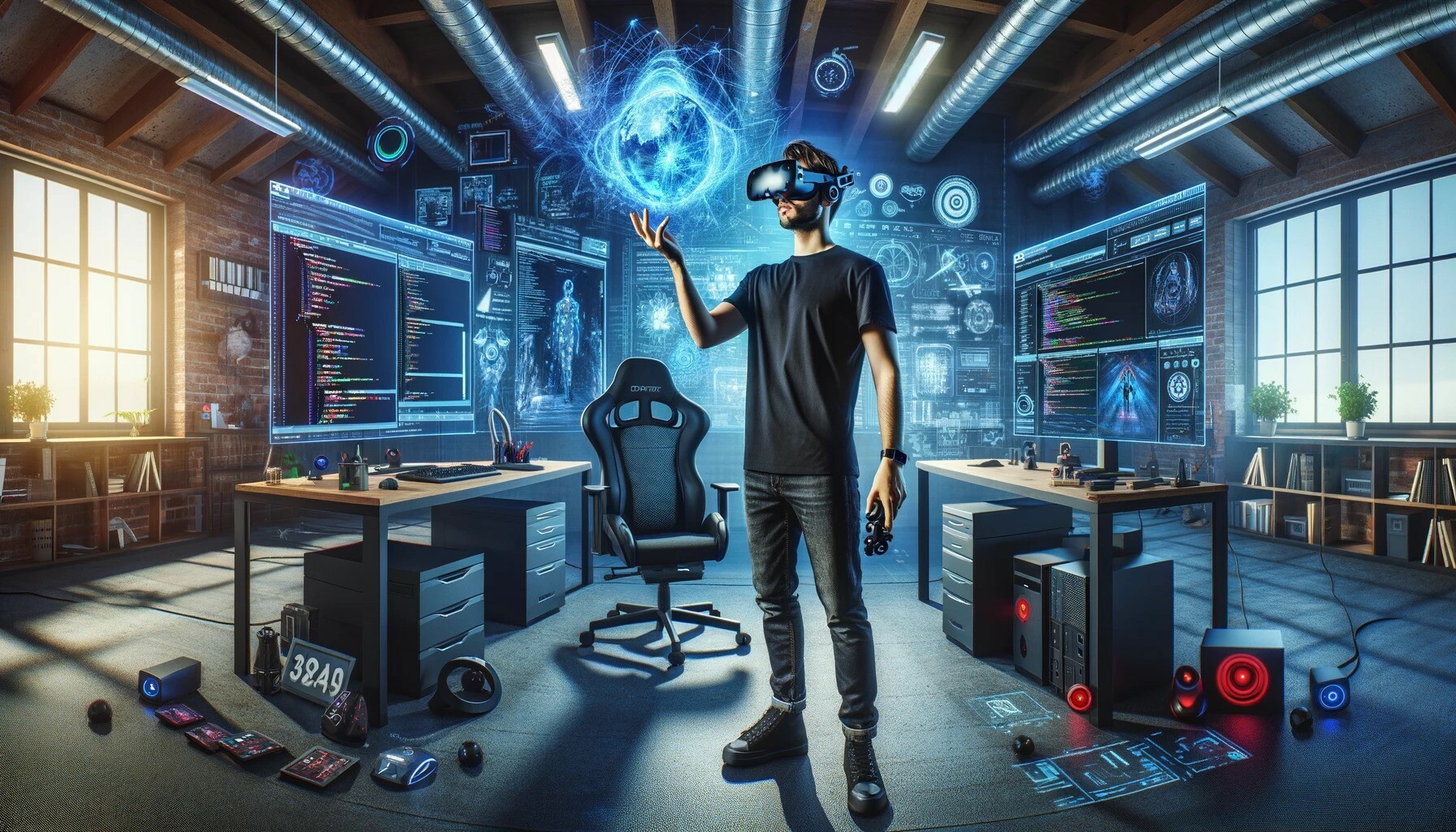Dive into the exciting world of VR development with us and discover what role you can play in it!

Virtual Reality (VR) has experienced an impressive surge in recent years, emerging as one of the most promising technologies. From entertainment to education, to medicine and industry, VR offers a wide range of applications, revolutionizing how we interact with the world. In this context, the profession of VR developer plays a crucial role in shaping these fascinating digital realities.
- Looking for opportunities? Check out our job offerings for gamers!
What Is A VR Developer?
A VR developer is an expert in creating virtual environments and experiences. These professionals have a wide range of skills, from programming and 3D modeling to user experience and storytelling. They work in teams, often consisting of designers, engineers, and artists, to develop immersive VR applications that offer users unique experiences.
Tasks Of A VR Developer
The tasks of a VR developer are diverse and challenging. They include:
- Development of VR applications: VR developers program the software that allows users to immerse themselves in virtual worlds. They often use programming languages such as C#, C++, or Unity to create interactive and immersive experiences.
- 3D modeling and animation: An important part of VR development is the creation of 3D models and animations that bring the virtual environment to life. VR developers use tools like Blender or Maya to create and animate objects, characters, and landscapes.
- Optimization and performance: To ensure that VR applications run smoothly and provide an immersive experience, it is important that they are well optimized. VR developers optimize their programs to maximize performance and increase frame rates, so that users do not experience delays or stuttering.
- User experience and interaction: Another important aspect of the work of a VR developer is designing an intuitive user experience. They develop control systems and interaction possibilities that allow users to move freely in the virtual environment and interact with objects.
- Testing and troubleshooting: Before release, VR applications are extensively tested to ensure that they function flawlessly. VR developers identify and fix issues to ensure that users have a smooth and immersive experience.
Skills And Qualifications

To be successful as a VR developer, various requirements are necessary. In addition to in-depth knowledge of programming and 3D modeling, a passion for technology and innovation is essential. A deep insight into game mechanics as well as an understanding of the needs and expectations of users are also crucial.
- Looking for opportunities? Check out our job offerings for gamers!
A bachelor's degree in computer science, software engineering, game development, or a similar field may be advantageous, but is not necessarily required if you have relevant practical experience and skills.
Furthermore, the profession of a VR developer requires a willingness to learn continuously, as technology and market requirements are constantly evolving. The ability to think creatively and solve problems, as well as teamwork and communication skills, are other important aspects of being successful in this field.
Why Gamers Have Good Chances
Gamers are often particularly well-suited for the role of VR developer, as they already have a deep understanding of virtual worlds and gameplay mechanics. Their passion for games drives them to create innovative and captivating experiences that go beyond traditional boundaries.
- Looking for opportunities? Check out our job offerings for gamers!
Gamers often also have experience with using various platforms and technologies, which helps them quickly adapt to the complex world of VR development. Their creativity, critical thinking, and ability to empathize with the player's perspective make gamers valuable members of teams looking to create immersive VR experiences.






























